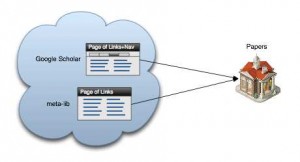A collection of links and materials that i’m collating for a section on loss of control – in particular the way that more student interaction may be taking place in social networking sites rather than in institutional owned VLEs. Is this something to worry away, or does it create trust and ownership issues?
imprisoned by your vle (has a link to the delightful analysis referring to Bentham)
Panckhurst, R.; Marsh, D. (2008). Communities of Practice. Using the Open web as a
collaborative Learning platform. iLearn Forum, Paris, France
Selwyn, N. (2007). Screw Blackboard… do it on Facebook! an investigation of students’
educational use of Facebook. [Available at: http://www.scribd.com/doc/513958/Facebook-
seminar-paper-Selwyn, accessed: 17.04.2008]
Naidu, S. (2003). Trends in faculty use and perceptions of e-learning
Good Practice and Innovation, Effective Use of Virtual Learning Environments (2006). JISC
Infonet.


 I’m currently working my way through the second edition of Social Capital by John Field, which is in the Routledge Key Ideas range. Chapter one covers the history of the term and idea, mentioning the work of Hanifan (1916), through Dewey to the three contempory writers who have shaped most of the modern thinking on the concept – Bourdieu, Coleman and Putnam.
I’m currently working my way through the second edition of Social Capital by John Field, which is in the Routledge Key Ideas range. Chapter one covers the history of the term and idea, mentioning the work of Hanifan (1916), through Dewey to the three contempory writers who have shaped most of the modern thinking on the concept – Bourdieu, Coleman and Putnam.